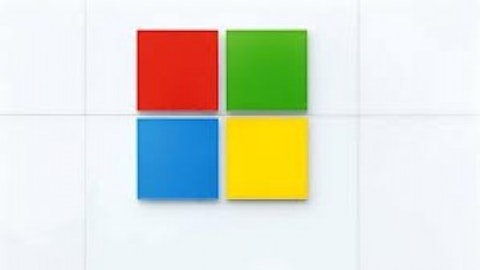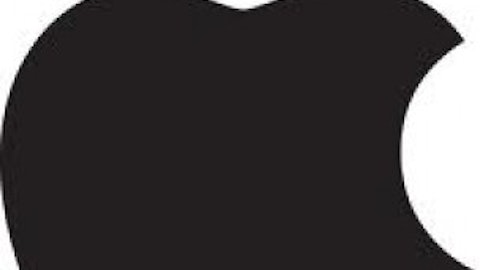Apple Inc. (NASDAQ:AAPL) stock has taken off only marginally even after beating consensus revenue expectations. The company has decided to payout up to $100 billion to its investors, but the optimism surrounding the company seems rather limited as the company provided almost no signs of any new game-changing products. However, the largest buyback in corporate history, along with dividend yield of ~2.9% is very appealing to long-term buy and hold investors, and based on current valuations, shrewd investors are jumping in.
Declining growth; margins will get squeezed
Apple Inc. (NASDAQ:AAPL)’s revenues for 2Q FY2013 came in ahead of guidance with revenues hitting $43.6 billion, which represents a Y/Y growth of ~11% but the company’s net income declined from the year ago quarter net income of $11.6 billion, to $9.5 billion. In other words, Apple is selling more but the company’s selling prices and profits have declined.
In Q2 FY2013, the gross margins of the company declined to 37.5% from the Q2 FY2012 gross margin of 47.4%. Apple sold 37.4 million iPhones in the quarter compared to only 35.1 million in Q2 FY2012. And Apple’s grasp in the tablet space seems pretty strong with 19.5 million iPad unit sales, a strong increase from the year ago quarter of 11.8 million only. The healthy increase in iPad sales was aided by the increased sales of the iPad Mini, which has a lower price point, and that played a part in trimming the overall gross margins of Apple Inc. (NASDAQ:AAPL).
A larger portion of iPhone 4 and 4S sales along with lowered prices to lure in first time smartphone buyers led to a decrease in iPhone Average Selling Prices (ASPs), which came down ~$28 in 2QFY2013. Some of the investor skepticism increased because of this sequential drop in ASPs, which declined from the previous quarter ASP of ~$641 to the most recent quarter ASP of $613 per iPhone.

Historical payouts and debt issuance; fails to get AAA rating
Apple’s cash hoard hit a record $145 billion, which was aided by the $12.5 billion in operating cash flow generated by the company in Q2 FY2013. And the company will be using these funds to ramp up its share repurchase plan to a record $60 billion, making it the largest share repurchase of all time. And the company will also spend $1 billion a year to net-settle vested stock handed out to employees.
And Apple’s increased dividend payout of 15% boosts the company’s quarterly payout to $3.05 per share, which gives the company’s dividend a healthy yield of ~2.9%. This payout places Apple among the largest dividend-paying companies in the world, as the company will be handing out cash payments of $11 billion every year. As a result, investors who are invested in Apple Inc. (NASDAQ:AAPL) for the long-haul now have two very good reasons to hold onto their stock at current valuations.
With roughly $102 billion tucked away offshore, Apple just tapped into the debt markets, raising a record $17 billion in floating and fixed rate notes with maturities ranging from 3 years to 30 years. The company will be paying yields that are extremely lucrative from a financing perspective with rates of only 40 to 100 bps over Treasuries. However, credit agencies have not stamped the highly coveted AAA rating on Apple, but the next best thing AA+ from S&P, and Aa1 from Moody’s.
The credit rating companies have stated that the fickle consumer tastes and increased competition in the broader IT hardware space as the reason behind not awarding the highest rank. However, Microsoft Corporation (NASDAQ:MSFT) with its stagnant business lines and lack of innovation still managed to land the AAA rating from the rating agencies.
Apple and Microsoft are very different
In recent times, numerous comparisons have been drawn between Apple and Microsoft Corporation (NASDAQ:MSFT) as the latter also has been handing out sizable cash payouts, as well as doing sizable repurchases and a stock price that hasn’t moved much for years. However, the comparisons drawn between the two firms are off by a big mark in two aspects as the two firms differ substantially in terms of business operations.
Microsoft Corporation (NASDAQ:MSFT) is more of an enterprise business with a focus on software, and Apple is consumer-centric business with an emphasis on hardware as well as software. And most importantly, Apple Inc. (NASDAQ:AAPL)’s brand value is significantly higher than Microsoft, and will almost certainly remain that way.
Microsoft Corporation (NASDAQ:MSFT)’s products will reduce in importance due to lower PC usage globally, a money-losing online business, as well as hardware offerings that face intensifying competition.
Vote of confidence from Russian tycoon
Just recently, Russia’s richest man, Alisher Usmanov, stated that he took a $100 million stake in Apple, after the company’s market cap declined by more than $100 billion. He stated that he believes in Apple’s business and the legacy left by Steve Jobs. Investors should take heed because Usmanov’s investing prowess is phenomenal, as he was one of the early backers of Facebook Inc (NASDAQ:FB), and he got a return of more than 10x from his investment by selling a sizable portion in Facebook’s IPO. Usmanov stated that Apple is a great investment for the next three years.
It just might be the right time for investors to buy and hold onto Apple Inc. (NASDAQ:AAPL) stock while receiving a small but steady stream of dividends, and share repurchases to drive the EPS higher.
The article Apple: A Buy and Hold Stock originally appeared on Fool.com.
Copyright © 1995 – 2013 The Motley Fool, LLC. All rights reserved. The Motley Fool has a disclosure policy.


